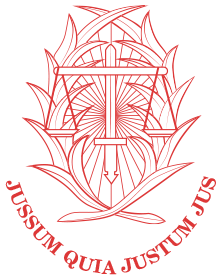“Former Brazilian president Luiz Inácio Lula da Silva has every right to defend his point of view in the country and abroad regarding the legal proceedings that weigh on him. These led to his imprisonment after a federal court of appeals in January upheld his conviction for corruption and money laundering.
The manner in which Lula da Silva has chosen to defend himself to the world, however, needs to be challenged. In a recent article he presented a version of recent Brazilian history that bears no relation to reality. This would be a problem for historians were he not the influential political leader that he is.
The former president portrays Brazil as a democracy in ruins, in which the rule of law has given way to arbitrary measures designed to undermine him and his party. This is not true.
It is also not true, as Lula da Silva claims, that Brazil was directionless before he assumed the presidency in 2003. One only needs to remember the successful stabilisation of the economy after years of hyperinflation, which began with the Real Plan launched by former president Itamar Franco and continued during my government. This was also a period marked by the establishment of social welfare programmes that Lula da Silva would subsequently expand.
His is a peculiar version of the past few decades of Brazilian history in which he sometimes appears as the people’s saviour and sometimes as the victim of an “elite” conspiracy. It lends itself, inadvertently, to the delegitimisation of the collective effort that is the foundation of Brazilian democracy.
President Dilma Rousseff’s impeachment and removal from office in 2016 was not, contrary to what Lula da Silva claims, a coup d’état. It was the result of, among other things, her government’s violation of Brazil’s fiscal responsibility law in the run-up to the 2014 election.
The impeachment process followed all the constitutional proprieties under the supervision of the Brazilian supreme court, in which the majority of justices were nominated by Lula da Silva and Ms Rousseff.
My criticism is not motivated by personal antagonism. Lula da Silva and I fought together against the authoritarian regime that ruled Brazil between 1964 and 1985. When, subsequently, we ran against each other in democratic elections, I maintained a constructive relationship with him.
I am sorry that the former president faces additional charges of corruption and money laundering. But the fact is that the legal proceedings in which he has been involved followed due process and have been carried out in accordance with the constitution and the rule of law.
Lula da Silva’s case is not an isolated one. In Brazil there are politicians from every party in prison, many of whose convictions were upheld by an appeals court. They include members of my own party, the PSDB.
The precedent for imprisonment after a conviction is upheld in a federal appeals court stems from a judgment by the supreme court that long precedes Lula da Silva’s conviction. Convicted persons begin serving their sentence without this affecting their right to appeal to higher courts.
Moreover, Lula da Silva’s ineligibility to run for president in the forthcoming election is the consequence of a popular initiative that received more than 1m signatures, was then approved by Congress and signed into law by the former president himself in 2010. The so-called clean slate law (lei da ficha limpa), the result of a civil society campaign against corruption, prohibits anyone convicted at the appeals court level from running for office.
The popular initiative that resulted in the law was a direct response to the Mensalão scandal, a votes-for-cash scam uncovered in 2005. The dismantling of this corruption scheme did not prevent another, even larger one from being perpetrated in some of the largest state-owned companies, notably Petrobras. The investigation into this scandal, known as Lava Jato or “Car Wash”, uncovered a scheme to divert billions of dollars to Lula da Silva’s Workers’ party.
Brazil is going through a painful but necessary process of re-moralising its public life, and the actions of the Federal prosecutor’s office and the judicial branch are part of this.
I am not always comfortable with the length of the sentences imposed or with the expansion of “preventive” pre-trial detention, in which the accused is imprisoned before even his or her first trial in a lower court.
It is a grave distortion of reality, however, to say that there is a targeted campaign in Brazil to persecute specific individuals. My country deserves more respect.”
Publicado originalmente em: https://www.ft.com/content/7775bddc-a46c-11e8-a1b6-f368d365bf0e
